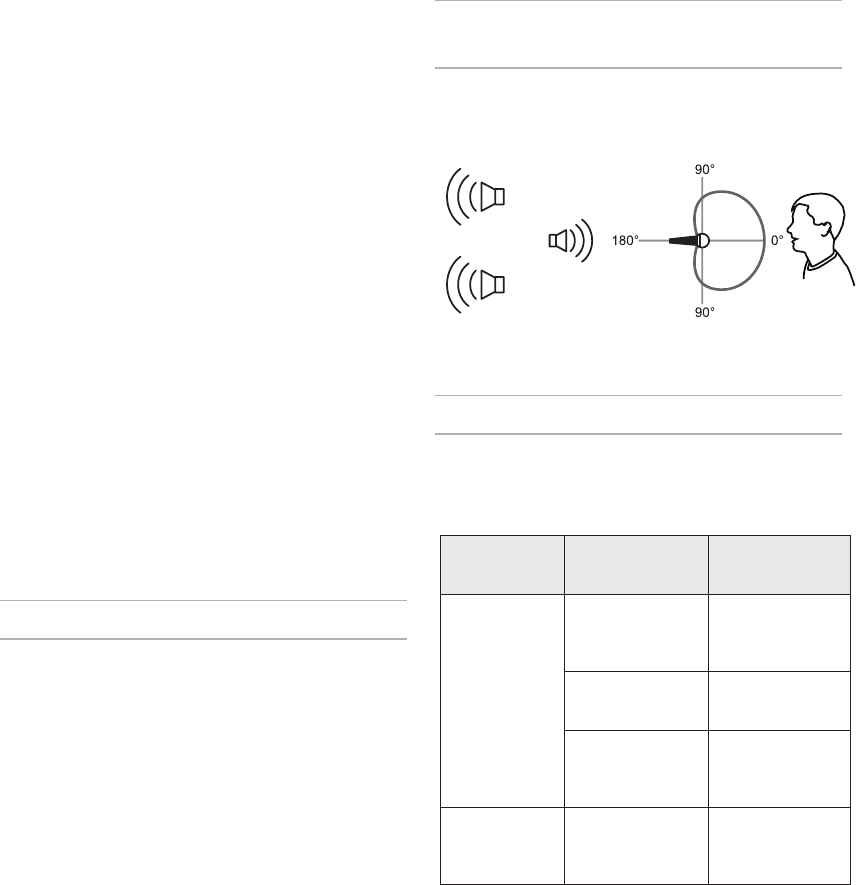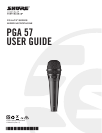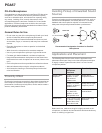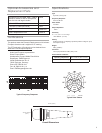
2
PGA57
Avoiding Pickup of Unwanted Sound
Sources
Place the microphone so that unwanted sound sources, such as
monitors and loudspeakers, are directly behind it. To minimize
feedback and ensure optimum rejection of unwanted sound,
always test microphone placement before a performance.
MONITOR
P.A. LOUDSPEAKER
Recommended Loudspeaker Locations for Cardioid
Microphones
Applications and Placement
The following table lists the most common applications and
placement techniques. Keep in mind that microphone technique
is largely a matter of personal taste; there is no one "correct"
microphone position.
Application Suggested
Microphone
Placement
Tone Quality
Guitar & Bass
Amplifiers
2.5 cm (1 in.) from
speaker, on-axis
with center of
speaker cone.
Sharp attack;
emphasized bass.
2.5 cm (1 in.) from
speaker, at edge of
speaker cone.
Sharp attack; higher
frequency sound.
60 to 90 cm (2 to
3 ft.) back from
speaker, on-axis
with speaker cone.
Softer attack;
reduced bass.
Snare Drum 2.5 to 7.5 cm (1 to 3
in.) above rim of top
head of drum. Aim
mic at drum head.
Most "snap" from
drumstick.
Before each use, make sure the grille is tightly secured on the
microphone, as vibration and accidental hits with drumsticks may
loosen it, resulting in signal loss.
PG Alta Microphones
Congratulations on the purchase of a new Shure PG Alta series
microphone. The PG Alta series delivers professional quality
audio at an affordable price, with solutions for capturing nearly
any source, including voice, acoustic instruments, drums,
and amplified electric instruments. Suitable for live and studio
applications, PG Alta microphones are built to last, and meet
the same rigorous quality testing standards that make all Shure
products trustworthy and reliable.
General Rules for Use
• Do not cover any part of the microphone grille with your hand,
as this will adversely affect microphone performance.
• Aim the microphone toward the desired sound source (such
as the talker, singer, or instrument) and away from unwanted
sources.
• Place the microphone as close as practical to the desired
sound source.
• Work close to the microphone for extra bass response.
• Use only one microphone to pick up a single sound source.
• For better gain before feedback, use fewer microphones.
• Keep the distance between microphones at least three times
the distance from each microphone to its source (“three to one
rule”).
• Place microphones as far as possible from reflective surfaces.
• Add a windscreen when using the microphone outdoors.
• Avoid excessive handling to minimize pickup of mechanical
noise and vibration.
Proximity Effect
Directional microphones progressively boost bass frequencies as
the microphone is placed in closer proximity to the source. This
phenomenon, known as proximity effect, can be used to create a
warmer, more powerful sound.






